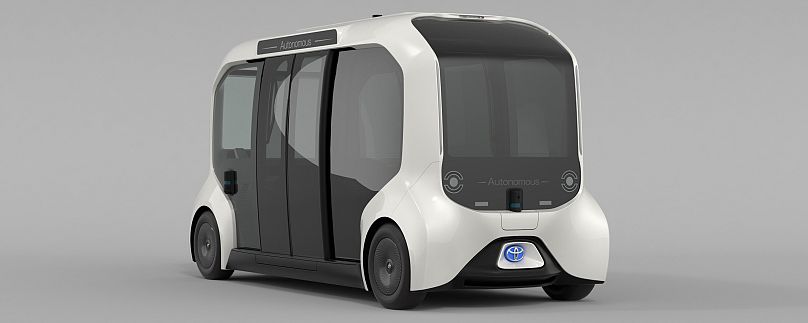TOYOTA ANNOUNCES 90% OF VEHICLES FOR 2020 OLYMPICS WILL BE ELECTRIFIED
Share

Toyota a worldwide partner of the Olympic and Paralympic Games Tokyo 2020, has announced nearly ninety per cent of the vehicles it will provide for the games will be electrified. The company hopes to achieve the lowest emissions target ever for official vehicles used at the Olympic and Paralympic Games.
As part of a shift in recent games towards environmentally conscious solutions, the Tokyo Organising Committee of the Olympic and Paralympic Games has put together a sustainability report that highlights electrified vehicles as a profitable avenue for innovation. In the report, the committee commits to “use low-polluting, low-CO2 emission official fleet while making the best use of the world’s most advanced, energy-efficient public transport”.
Alongside conventional commercially available electrified vehicles, like hybrid electric vehicle (HEVs) and plug-ins such as Toyota’s popular Prius range, the Tokyo 2020 committee also wish to create an inspirational example of what hydrogen-powered vehicles could do. Tokyo 2020 hopes “to make the Olympic Village a good example for the realisation of the hydrogen society, as a legacy of the Games”.
Toyota’s proposed vehicles for the Games’ official fleet clearly reflect these pledges around sustainability. The company is providing 500 of its Mirai model to help transport staff between venues at the games; a vehicle that it claims signals a “new age of vehicles” with its hydrogen fuel cell system. These smaller fleet vehicles are being proposed alongside 100 Sora hydrogen fuel cell buses which are being introduced to the Tokyo metropolitan area ahead of the Games.
In addition to providing existing models, several specially developed vehicles are also being delivered by Toyota. The Concept-i will be a part of the Olympic torch relay leading up to the games and will take part as the lead vehicle in marathon events. It features the company’s most advanced AI automated driving system.
Although the Sora hydrogen fuel cell-powered buses provided by Toyota for the Olympics will not be self-driving, this technology could help Japan in the future as depopulation of rural areas has led to a shortage of drivers for public transport. In a 2018 report of the topic infrastructure consultancy firm, Roland Berger explains that elderly populations in rural Japan could benefit vastly from the increased transport opportunities that self-driving vehicles could provide. The report states, “Autonomous vehicles can make a major contribution to mobility in the rural environment, too, reconnecting people who live in the countryside”.
Many of Toyota’s goals in association with the 2020 Olympic and Paralympic games are focused on increasing public awareness and accessibility of this advanced electric vehicle technology. There has already been an incredible demand for tickets with organisers telling the Associated Press that 7.5 million residents registered to be a part of the lottery system used to allocate tickets.
With this increased traffic into Tokyo’s already busy metropolitan area, the success of electrified public transportation at the 2020 Olympic and Paralympic Games could provide valuable insights into the reality of adopting this technology.













